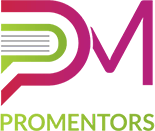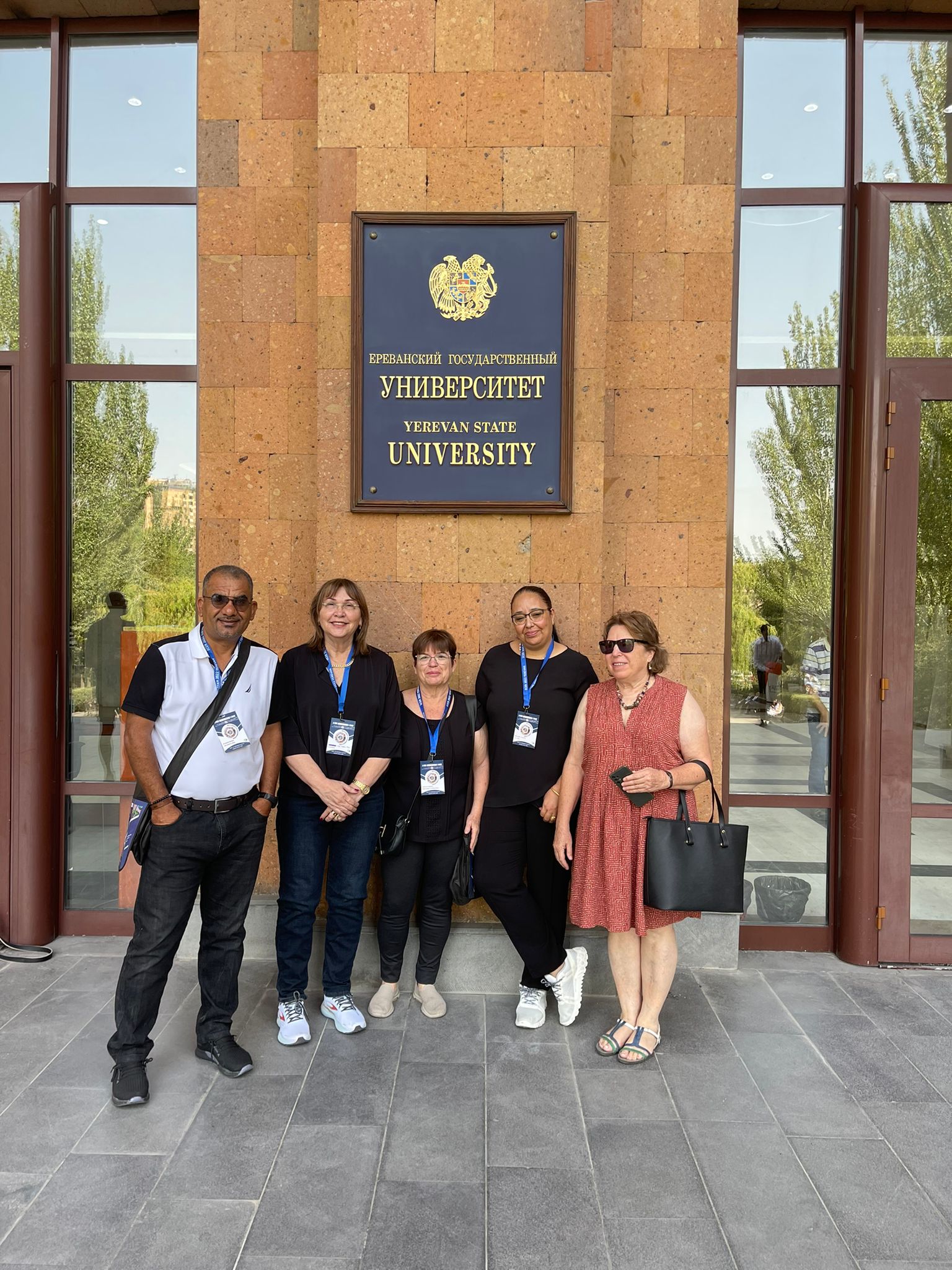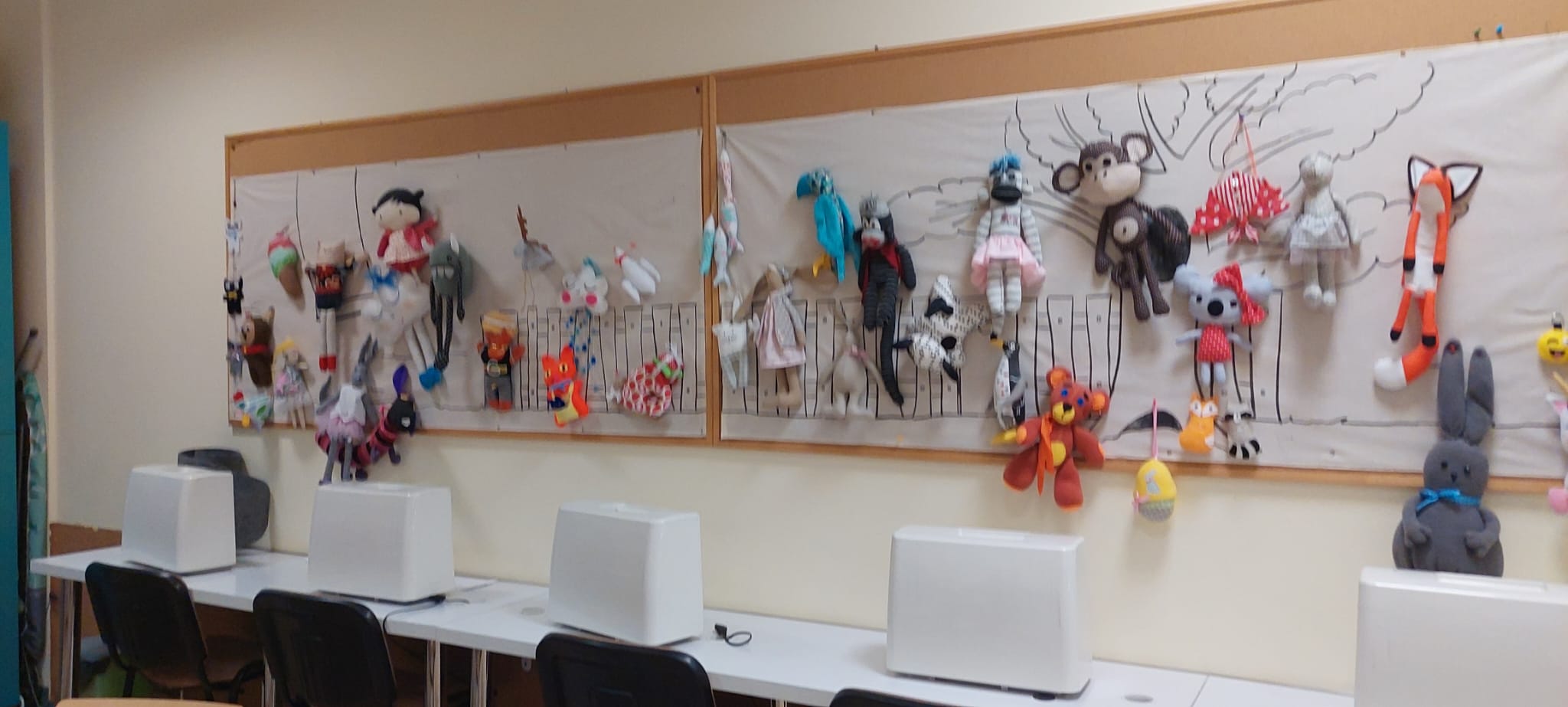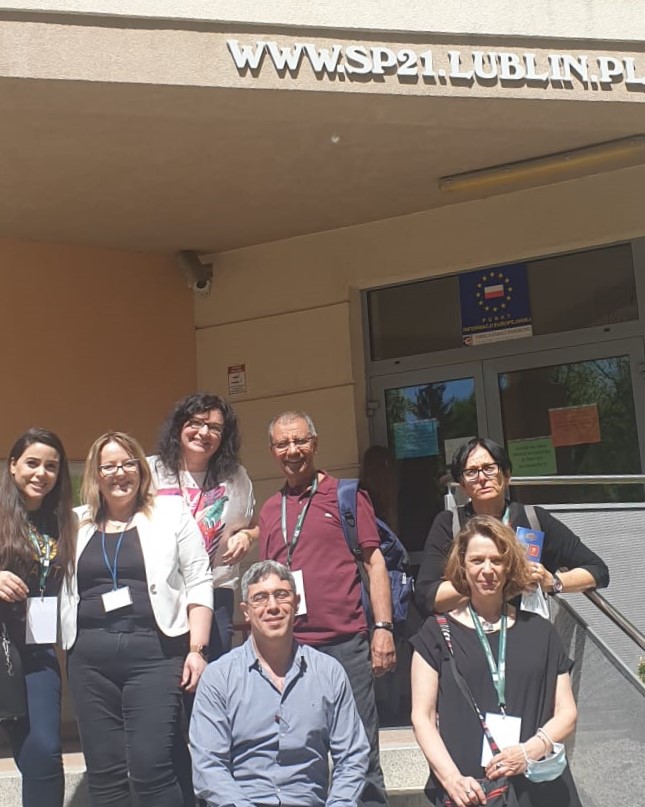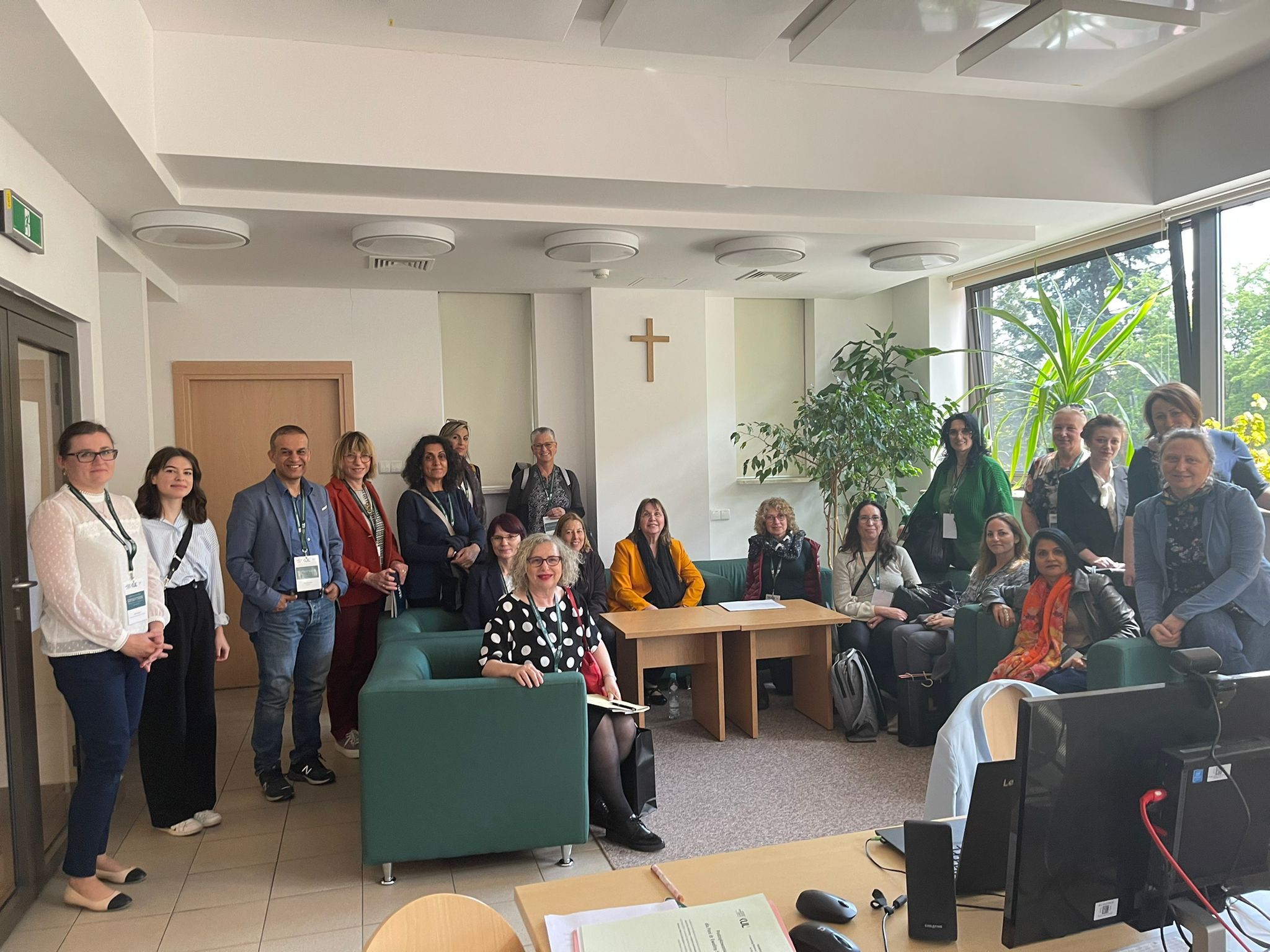Written by Ilona Markkanen, University of Jyväskylä
Edited by Tslil Farchi & reviewed by Marsha Hachmon
“To be able to be there for someone and someone is there for you. And that someone is not just anybody, but a peer, a person in the same field.”
– A mentee
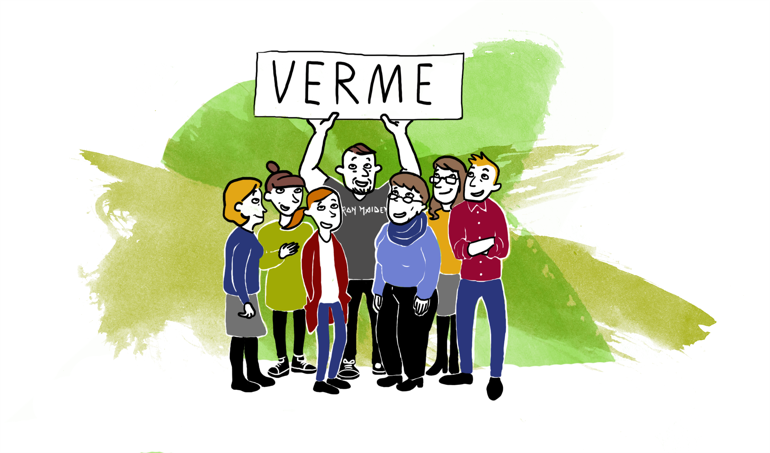
Peer-group mentoring (PGM), known in Finland by the acronym verme (“vertaisryhmämentorointi”), is a Finnish approach supporting teachers in their career. Peer-group mentoring brings teachers together to share and reflect on their experiences. It also allows them to discuss day-to-day problems and challenges they face. And especially, it involves learning from each other and learning together. Moreover, the Finnish model of PGM differs by certain features from some other international mentoring models. Contrary to typical international models, PGM is developed for serving all teachers and education professionals, not only new teachers.
“There is actually time to reflect important work-related questions with others. At the same time – One can learn from it, from oneself ,and from others. Also, you experience helping a colleague with his/her problems. That’s the best part of it for me.”
– A mentor
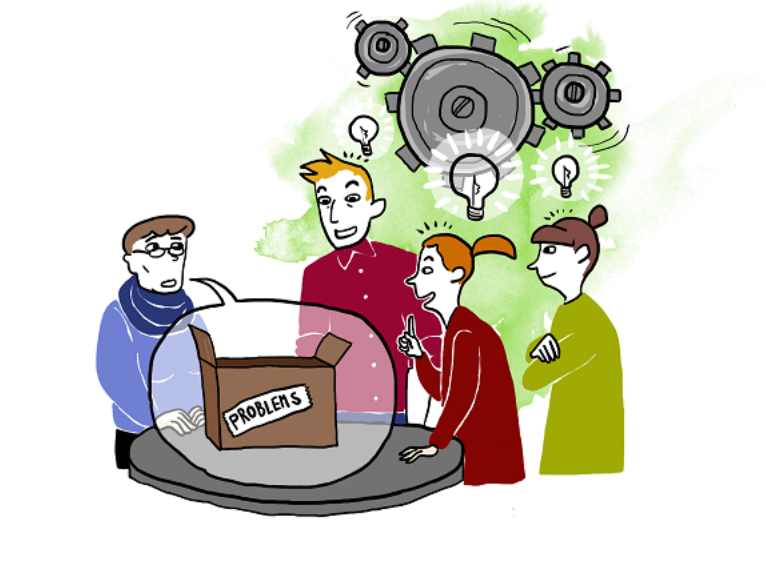
The core of the activity is sharing knowledge and experiences, and learning from each other. Rather than, transmitting knowledge from more experienced colleague to less experienced one. Moreover, whereas in some international models participation into mentoring for new teachers is compulsory and involves assessment of the mentee, participation in the Finnish model is voluntary, and no assessment is involved.
It is worth noting, Finnish education professionals are highly educated and skilled in their work. And, they have expressed a clear need for sharing their experiences and for continuous learning with their peers. Peer-group mentoring allows them to stop and put some serious thought into fundamental questions. Questions of education, which are trying to solve work-related challenges.
“It’s a very essential part of this activity. To have a place where my cumulated tension, performance or this idea of “picture perfect teacher”, which I’m not, can be offloaded.”
– A mentor
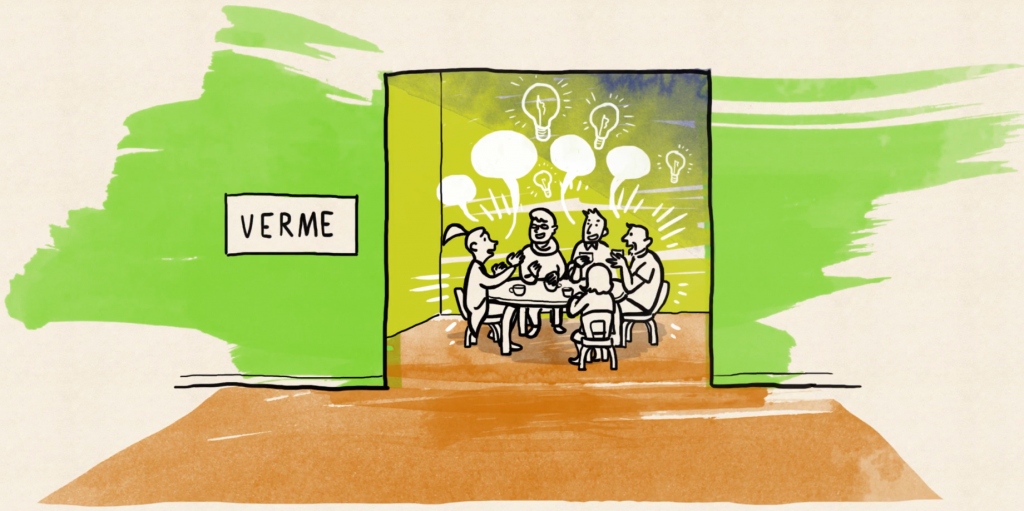
In general, PGM groups meet typically once a month after school hours. Each group consists of 4 to 10 teachers and their mentor. And they discuss work-related issues. The PGM approach draws on the constructivist view of learning. Which maintains that we construct our learning based on our prior knowledge, experiences, and beliefs. Consequently, peer discussion is an essential element in creating shared understanding of the work of teachers. The leading pedagogical principle has been the model of integrative pedagogy. Which aims at merging theoretical and practical knowledge with self-regulative and sociocultural knowledge.
How do Finnish teachers experience PGM?
Over the years, many feedback questionnaires and interviews have been conducted. According to them, PGM is a forum with an open and confidential atmosphere. In addition, they have shown it includes peer support, partnership, encouragement of colleagues and opening tacit knowledge.
Furthermore, both mentors and mentees have reported that peer-group mentoring strengthens the agency of teachers. Besides, they added, it supports their professional identity as autonomous teachers and has effects on work community. Peer-group mentoring seems to have a positive effect on the professional development and well-being of teachers.
“Well, it was really a great support. It was very significant on this semester. It was a real resource.”
– A mentee
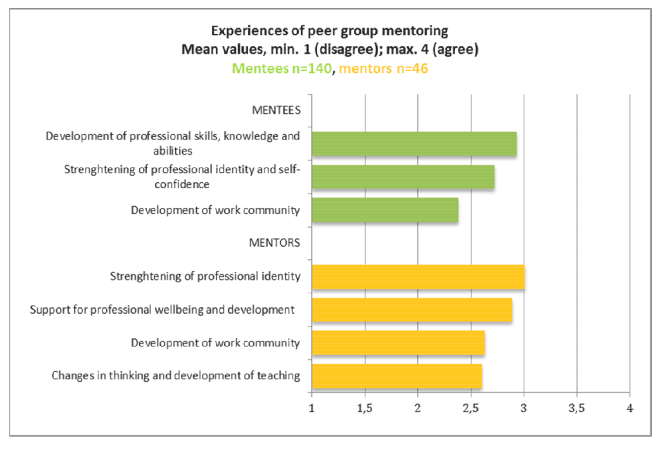
* The quotations used are drawn from interviews of the participants of PGM in Finland.
